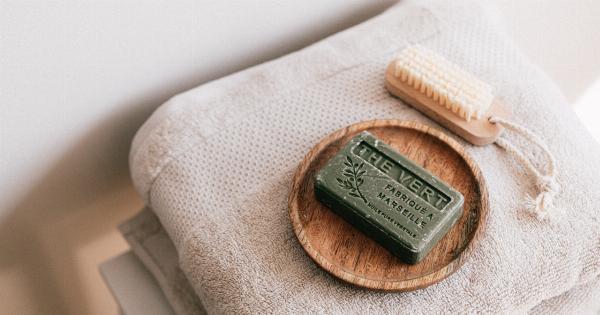Experiencing mucus in stool can be alarming for many individuals. The presence of mucus in stool is not always a cause for concern, but it can be an indication of an underlying health issue.
Therefore, it’s essential to identify the underlying cause to determine the appropriate treatment. Here’s what you need to know about mucus in stool:.
What Causes Mucus in Stool?
The most common cause of mucus in stool is inflammation in the colon. When the colon becomes inflamed, it may produce excess mucus to protect its inner lining. The inflammation could result from various factors, including:.
- Ulcerative colitis
- Crohn’s disease
- Irritable bowel syndrome (IBS)
- Diverticulitis
- Colon cancer
What are the Symptoms of Mucus in Stool?
Aside from noticing mucus in your stool, you may also experience the following symptoms:.
- Bloating
- Abdominal pain and cramping
- Nausea
- Diarrhea
- Constipation
- Fatigue
- Weight loss
- Fever
How is Mucus in Stool Diagnosed?
If you’re experiencing mucus in stool, consult a healthcare professional. The doctor would conduct a physical examination and recommend diagnostic tests, including:.
- Stool analysis: This test would help identify any infections or parasites in the stool.
- Colonoscopy: A flexible tube with a camera is inserted through the rectum to examine the colon and identify any abnormalities or inflammation.
- Barium enema: This test uses a contrast material to highlight the colon in X-rays, helping identify any inflammation or abnormalities.
- CT scan: A series of X-rays are taken to provide detailed images of the colon and identify any abnormalities or inflammation.
How is Mucus in Stool Treated?
The treatment for mucus in stool depends on the underlying cause. If the presence of mucus in stool is due to inflammation in the colon, the doctor would prescribe anti-inflammatory medications, such as corticosteroids, to reduce inflammation.
Antibiotics may also be prescribed if there’s an infection or parasite present.
If there’s an underlying medical condition, such as ulcerative colitis or Crohn’s disease, the doctor may recommend medications, lifestyle changes, and dietary modifications to manage the condition.
It’s essential to report any persistent symptoms or changes in bowel habits to your healthcare professional to determine the appropriate treatment.
How to Prevent Mucus in Stool?
While it may not always be possible to prevent mucus in stool, some lifestyle changes and habits may help reduce the risk. They include:.
- Eating a balanced and nutritious diet rich in fiber to promote healthy bowel movements.
- Drinking enough water to stay hydrated and support the digestive system.
- Exercising regularly to improve digestion and relieve stress, which can worsen symptoms.
- Avoiding trigger foods that may cause inflammation or irritate the digestive system, such as spicy foods, caffeine, and alcohol.
- Managing stress through meditation, yoga, or other techniques to reduce inflammation and improve digestion.
When to See a Doctor?
It’s essential to consult a healthcare professional if you’re experiencing the following symptoms:.
- Blood in stool
- Frequent and persistent diarrhea
- Severe abdominal pain and cramping
- Unexplained weight loss
- Fever
- Weakness and fatigue
These symptoms may indicate a more severe medical condition that requires prompt medical attention.
The Bottom Line
Mucus in stool is a common symptom that may occur due to various factors, including inflammation in the colon and underlying medical conditions.
While it may not always be a cause for concern, it’s essential to consult a healthcare professional to identify the underlying cause and determine the appropriate treatment. By making dietary modifications, adopting healthy lifestyle habits, and reporting any persistent symptoms, you can reduce your risk of developing mucus in stool and promote optimal digestive health.




























